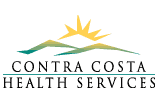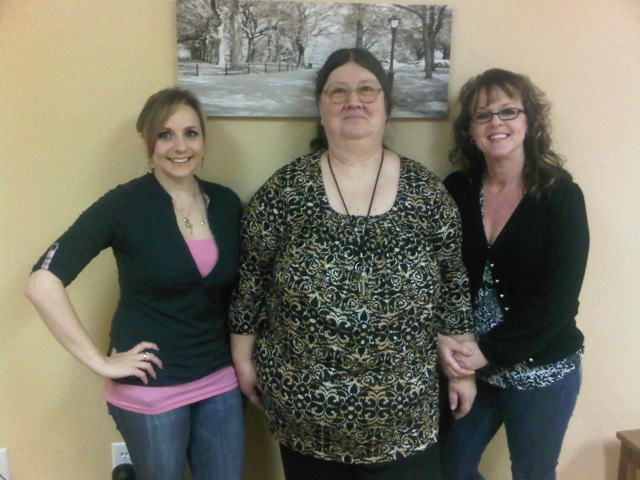Contra Costa Health Services Homeless Program, Transitions Home (Transitions), of Martinez, California, was awarded a SAMHSA treatment for the homeless grant on September 30, 2006. Transitions serves people who are homeless or at-risk of becoming chronically homeless due to serious mental health, substance abuse or co-occurring disorders. This population includes people living on the streets, in encampments, in interim housing, and those being released from public institutions, including prisons/jails, hospitals, and psych emergency wards. Transitions also targets veterans and collaborates with the local Veterans Administration office. Severely underserved because of the difficulties involved in addressing their multiple needs, all of these populations need intensive, on-going assistance and integrated, wrap-around services in order to access and complete treatment and gain and retain housing.

Transitions uses a mix of evidence-based and promising practices, including: multi-disciplinary teams using an intensive case management approach; rapid housing; housing linked with wrap-around services; mental health and substance abuse treatment; prevention through discharge planning agreements; and homeless court.
The program provides integrated housing, treatment and services to end homelessness and facilitate ongoing recovery, housing retention, access to income, and improved quality of life. Through an evidence-based approach that offers comprehensive, culturally appropriate care, Transitions provides its clients with wrap-around services linked to housing through a multi-disciplinary integrated services team using an intensive case management and no wrong door approach, as well as dedicated detox and treatment slots.
Services provided directly by team members or through referrals include:
• care coordination;
• housing assistance,
• mental health, substance abuse and co-occurring disorder assessments, referrals and counseling;
• health care;
• vocational services;
• benefits advocacy;
• life skills;
• money management; and
• veterans’ services and linkage with other community-based supports.
Services are delivered at the interim housing facilities, in accessibly located service sites, and in client homes. The Integrated Services Teams (IST) are mobile and maintain contact with clients even as they move between interim housing, residential treatment, and permanent housing. Typically, once housed, staff visit clients in their home at least once a week for the first six months to a year, a critical time in which the client is making the difficult transition from homelessness to housing. After that, staff remain in contact for as long as they are needed, although the frequency of interactions declines as clients regain stability and access community-based supports.
The Health, Housing, and Integrated Services Network (HHISN) ISTs use an intensive case management approach. The IST is composed of a team leader, care coordinator/benefits advocate, co-occurring disorder specialist, housing specialist, vocational specialist and a money manager. Transitions works to prevent homelessness for members of the target population being discharged from hospitals, psych emergency wards and the criminal justice system by forging referral agreements to link them with the HHISN IST.

Left to right: Case Manager Constance Bravos, Case Manager Megan Monahan, and Program Coordinator Deborah Keenan, Contra Costa Adult Continuum of Services staff. Megan was homeless and began working at the program when she became stable. Debbie was homeless and at the shelter and was helped by Megan. Constance was a homeless child at the family shelter and worked with both Megan and Debbie when they were staff at the family shelter. Now all three work at the shelter and are incredible role models for residents and staff.
Transitions uses a multi-disciplinary integrated service team to deliver intensive, wrap-around services to clients living in its Interim Housing Facilities. In previous projects, staff has used this model of delivering services to clients in permanent supportive housing projects. That model of delivering services in PSH was so effective that they decided to try it in a shelter setting, at their Interim Housing Facilities.
The multi-disciplinary team includes a co-occurring disorder specialist who provides mental health and substance abuse assessments, individual and group counseling sessions, referrals to treatment and crisis intervention, and carries a caseload. A care coordinator/benefits advocate provides benefits assessments, counseling and application assistance, maintains relationships with staff at mainstream benefit programs, and carries a caseload. The housing specialist develops housing plans, provides housing search and placement assistance, helps in resolving evictions, poor credit and rental history problems, assists in applying for subsidized housing, and provides tenancy classes and landlord mediation once the client is housed. In addition, he maintains a list of available units and their characteristics, and networks with landlords to continually expand the pool willing to accept clients. An HHISN team leader manages the HHISN team daily operations, supervises paraprofessional staff, and carries a caseload. A money manager provides budget counseling, assists consumers in managing their finances and problem-solving, and serves as a representative payee with consumer approval. A vocational specialist provides vocational assessments and job development, coaching and placement services, assists employers to assure successful integration of new workers, and carries a caseload.
When we asked Cynthia Belon, LCSW, Director, Contra Costa Health Services Behavioral Health and Homeless Services Division, to describe some of Transitions’ greatest successes, she said, “…we are very proud of the following successes from our last reporting quarter:
• Abstinence from alcohol and illegal drugs showed 228% change, from 17% reporting abstinence at intake increasing to 63% abstinent at six-month follow-up.
• Employment/education showed a 53% increase, from 9% employed or enrolled in school or training at intake to 13% at follow-up.
• Health rating: slightly more clients rated their health as excellent, very good, or good at follow-up than at intake (49% and 43% respectively).
• Emergency room treatment: there were large decreases in percentages of participants receiving ER treatment for all categories–physical complaints, mental or emotional difficulties, alcohol and substance abuse. The greatest rate of decrease was for alcohol and substance abuse (-92%). The percentages of participants receiving ER treatment for each type of complaint are relatively low at both intake and follow-up, indicating that most participants do not use the ER.
• Inpatient treatment: there were large percentage decreases in inpatient treatment for all categories – physical complaints, mental or emotional difficulties, alcohol and substance abuse. The greatest rate of decrease was for mental or emotional difficulties (-78%). As with ER treatment, the percentages of participants receiving inpatient treatment for each type of complaint are relatively low at both intake and follow-up, indicating that most participants do not receive inpatient treatment.”
Ms. Belon told us, “Providers across the country may be interested in learning about our relationship with the VA. We have worked with our local VA for the past several years on various projects in addition to this one. Through this project and others, our local VA provides the following services in coordination with us:
• outreach to homeless encampments
• case management to veterans in our housing programs
• case management to veterans in our Interim Housing Facilities
Another point that providers may be interested in is that our lead agency, Contra Costa Health Services Homeless Program, is a key stakeholder in an upcoming integration of three departments of the County Health Services: Mental Health, Alcohol and Other Drugs, and Homeless Program are being integrated into one Behavioral Health and Homeless Services Division. Responding to the changes nationwide in health care reform, we are transforming ourselves to remain sustainable into the future. We have seen models of Mental Health and Alcohol/Drug being integrated into a Behavioral Health Department, but we are one of the first we know of to include Homeless Programs in this type of integration.”
Important Transitions’ partnerships include the County Office of Homeless Programs (COHP), which is its lead agency. COHP provides project and grant administration; oversight and operation of HHISN IST, including supervision of co-occurring disorder specialist, housing specialist and the care coordinator/benefits advocate; operation of County Interim Housing facilities; development of discharge planning agreements; participation in forensic team meetings with law enforcement; organization of provider trainings; collection of GPRA data; and evaluation oversight.
Neighborhood House is a partner agency that provides provision of dedicated substance abuse and co-occurring disorder treatment. Rubicon, another partner agency provides supervision of HHISN team leader, vocational specialist and money manager, access to vocational training and employment services, life skills and other services. Anka Behavioral Health provides client identification and referral by the HOPE outreach team, transitional employment, and other services. County Alcohol and Other Drug Services Division provides contract development and oversight for dedicated treatment slots, and access to alcohol and other drug treatment services. Health Care for the Homeless provides primary health care, referrals for continuing and specialty care in county health system, mental health and substance abuse assessment, and counseling support. The Department of Veteran’s Affairs Northern CA Health Care Systems provides care coordination and linkages to VA services, including financial benefits, health care, mental health services, and substance abuse treatment.
